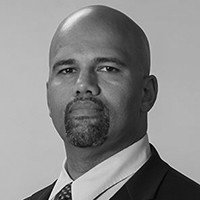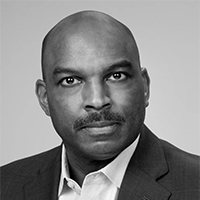Historic Document
This Country was a Lot Better Off When Indians Were Running It (1970)
Vine Deloria Jr. | 1970
Summary
Vine Deloria, Jr. (1933-2005) was a writer and activist for Native American rights. In the mid-1960s, he was executive director of the National Congress of American Indians, working to preserve the rights and increase the sovereign power of Native Americans. His work also examined the history of the ratification – and subsequent violations – of treaties between the United States government and native tribes. In the full version of the essay below, Deloria situates his life story in a chronicle of the long history of Native American sovereignty and its changing relationship with the United States government during the course of the twentieth century, from the aftermath of the Wounded Knee Massacre of 1890 to the Indian Reorganization Act of 1934, which afforded “Indian tribes full rights of self‐government for the first time since the late eighteen‐sixties,” and beyond.
Selected by

Christopher Brooks
Professor of History, East Stroudsburg University

Kenneth Mack
Lawrence D. Biele Professor of Law, Harvard Law School
Document Excerpt
On Nov. 9, 1969, a contingent of American Indians, led by Adam Nordwall, a Chippewa from Minnesota, and Richard Oakes, a Mohawk from New York, landed on Alcatraz Island in San Francisco Bay and claimed the 13‐acre rock ‘by right of discovery.’ The island had been abandoned six and a half years ago, and although there had been various suggestions concerning its disposal nothing had been done to make use of the land. Since there are Federal treaties giving some tribes the right to abandoned Federal property within a tribe's original territory, the Indians of the Bay area felt that they could lay claim to the island. . . .
The Alcatraz news stories are somewhat shocking to non‐Indians. It is difficult for most Americans to comprehend that there still exists living community of nearly one million Indians in this country. For many people, Indians have become a species of movie actor periodically dispatched to the Happy Hunting Grounds by John Wayne on the ‘Late, Late Show.’ Yet there are some 315 Indian tribal groups in 26 states still functioning as quasi‐sovereign nations under treaty status; they range from the mammoth Navajo tribe of some 132,000 with 16 million acres of land to tiny Mission Creek of California with 15 people and a tiny parcel of property. There are over half a million Indians in the cities alone, with the largest concentrations in San Francisco, Los Angeles, Minneapolis and Chicago.
The take‐over of Alcatraz is to many Indian people a demonstration of pride in being Indian and a dignified, yet humorous, protest against current conditions existing on the reservations and in the cities. . . .
Thanks to a Ford Foundation program, nearly 50 Indians are now in law school, assuring the Indian community of legal talent in the years ahead. . . .
In 1965 I had a long conversation with an old Papago. I was trying to get the tribe to pay its dues to the National Congress of American Indians and I had asked him to speak to the tribal council for me. He said that he would but that the Papagos didn’t really need the N.C.A.I. They were like, he told me, the old mountain in the distance. The Spanish had come and dominated them for 300 years and then left. The Mexicans had come and ruled them for a century, but they also left. ‘The Americans,’ he said, ‘have been here only about 80 years. They, too, will vanish, but the Papagos and the mountain will always be here.’ . . .
By making Alcatraz an experimental Indian center operated and planned by Indian people, we would be given a chance to see what we could do toward developing answers to modern social problems. Ancient tribalism can be incorporated with modern technology in an urban setting. Perhaps we would not succeed in the effort, but the Government is spending billions every year and still the situation is rapidly growing worse. It just seems to a lot of Indians that this continent was a lot better off when we were running it.




